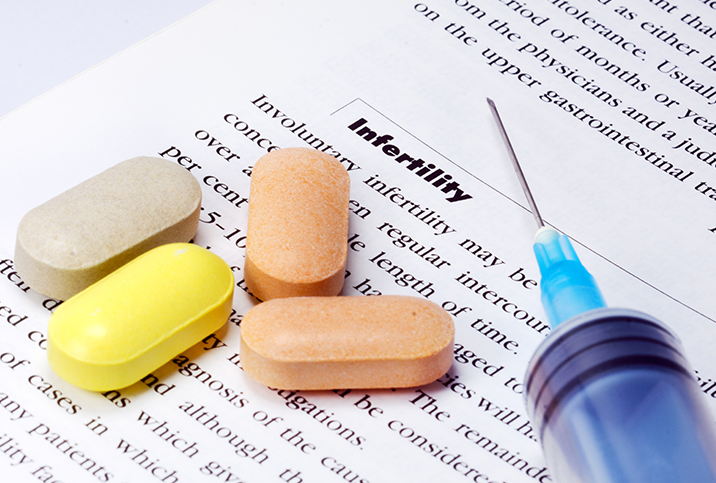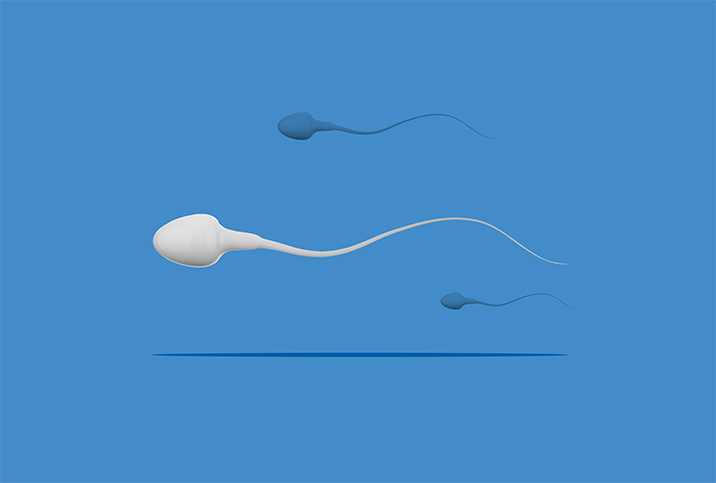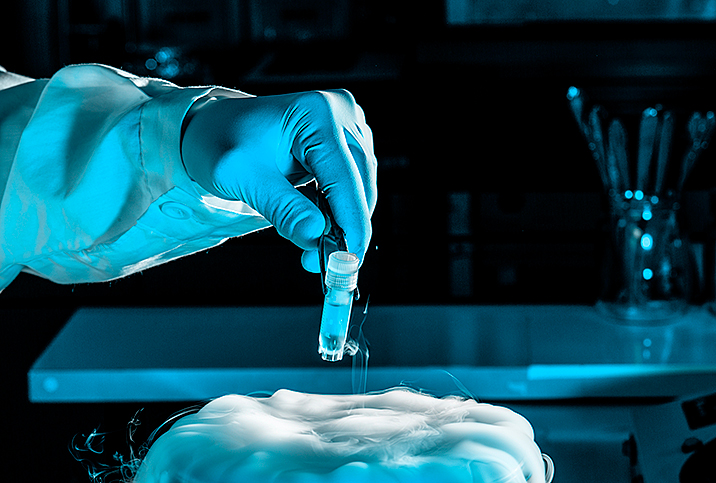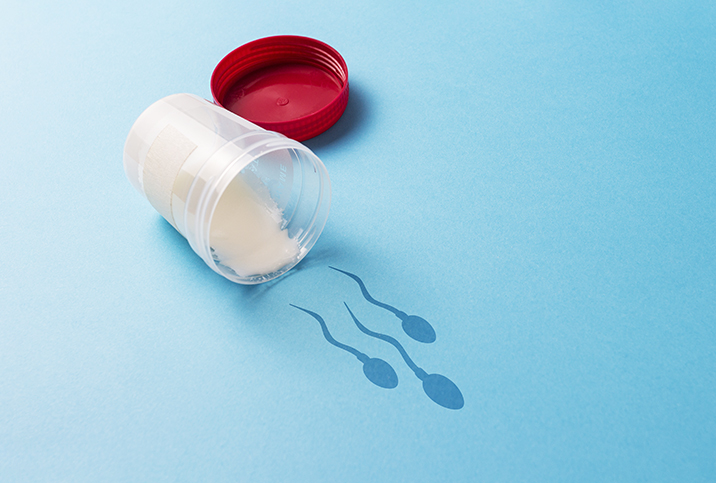How Do You Know if You Have Healthy Sperm and Why Is It Important?
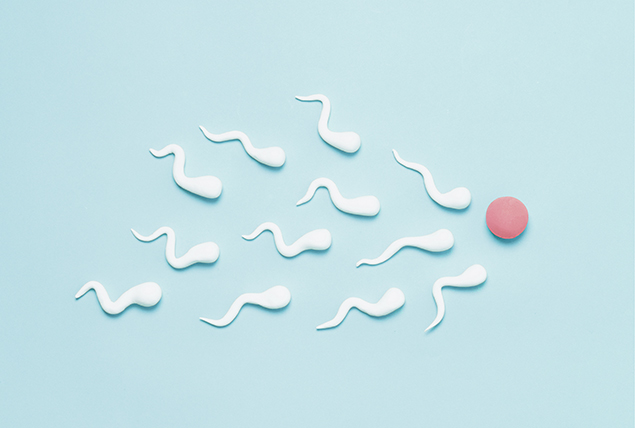
Sperm, or spermatozoa, are the means by which a male passes his DNA contribution to his offspring. These microscopic cells have an oval-shaped head and a powerful tail that allows them to propel themselves up the vaginal canal in an effort to fertilize a woman's egg.
During adolescence, the testicles start producing sperm, a process that continues throughout a man's lifetime. Spermatogenesis, or the development of a sperm cell, is a complex process that takes place within a series of specialized compartments inside the testicles over the course of around 74 days.
Hormonal signals from the brain tell specialized cells inside the testicles to begin the process of creating immature sperm, which are then passed along into a long, tightly-coiled tubule attached to the back of each testicle called an epididymis.
If you want to keep your swimmers happy, keep the rest of your body well-maintained, and you're halfway there.
Sperm mature and develop in the epididymis. Eventually, the fully mature sperm pass through to the vas deferens, a muscular tube on each testicle that connects the epididymis to the urethra near the prostate gland.
At this point, the vas deferens open up into structures called the ampulla of vas deferens, where the majority of sperm cells are stored until ejaculation.
How do you know if you have healthy sperm?
If a man has questions about his fertility, his healthcare provider may recommend a semen analysis. This is a test in which a semen sample is sent to the lab to be analyzed for a number of parameters to ensure it is healthy.
It's important to note that sperm cells comprise only a small part of a man's semen. Overall semen health is important to ensure the health of the sperm so it can survive long enough to fertilize an egg.
A semen analysis tests parameters that include the following:
- Sperm concentration (aka sperm count). Sperm count is the concentration of sperm per milliliter of semen. A normal sperm count is 15 million to 200 million sperm per milliliter (mL) of semen. Anything less than 15 million per mL or 39 million total sperm per ejaculation is considered low.
- Sperm morphology. This tests the average size and shape of the sperm cells. If too many are misshapen, they may have trouble reaching an egg to fertilize it.
- Sperm motility. Motility is the ability of the sperm to move.
- Vitality. Vitality is a measure of the percentage of live sperm contained in a sample.
- pH level. This tests the acidity of the semen sample. If the man's semen is too acidic, it may hamper the sperm's ability to survive the journey to the egg.
"If someone's pH is low, meaning acidic, that might mean they have a blockage," said Amy Pearlman, M.D., a men's health specialist and co-founder of Prime Institute in Fort Lauderdale, Florida. "The seminal vesicles make the pH more basic, or the pH higher. If the pH is low, then it suggests that there's a blockage where the seminal vesicles empty their fluid into the urethra. So that might be something that we have to open up to allow that fluid to come in."
Why is my sperm health important?
Simply having a sufficient sperm count isn't necessarily the same as having healthy sperm. If the sperm cells lack the ability to move, are misshapen or are in an environment that's too acidic, that will impair their chances of fertilizing an egg.
Yes, without healthy sperm a man's ability to father children may be impaired, but there's more to it than that. Sperm production is just one part of an extremely complicated set of interlocking systems and processes. It can be affected by a man's overall health, hormone production in his brain, his testosterone levels, certain medications, testicular diseases and more. Unhealthy sperm can be an indicator of a number of other health issues.
Even if you aren't planning to have a child right away, ensuring you have healthy sperm is still important.
How can I keep my sperm healthy and my sperm count high?
Semen quality and sperm counts have been declining globally for years. It's a complicated, multifaceted topic—and a controversial one—but there is emerging evidence that it is happening. Scientists have yet to pinpoint a cause, but some evidence points to modern life in an industrialized world—factors such as plastics in the environment, pollution, poor dietary choices and increased obesity.
It can be difficult to identify a single cause of low sperm quality.
"Genetic factors are one of many reasons a person can have a low sperm count," Pearlman said. "Another reason is if they have hormone issues, or if they've been on prior testosterone. A lot of guys, when they go to these different shot clinics in the community and they're put on testosterone, they're not told it can cause infertility. Getting exogenous testosterone can definitely cause people to have no sperm in their ejaculate.
"If you've had chemo, radiation, prior trauma, infection, medication—all those factors can affect sperm."
Men can make specific lifestyle choices that should lead to healthier sperm, though, such as the following:
- Maintain a healthy body weight.
- Exercise regularly. Get 150 minutes of aerobic exercise and two days of muscle strengthening per week (but don't overdo it).
- Eat a healthy diet. Eat meals rich in whole, natural foods with plenty of fruits, vegetables, nuts and lean protein.
- Avoid overly processed foods and excess sugar.
- Avoid sexually transmitted infections (STIs) and diseases (STDs). Chlamydia and gonorrhea can cause infertility.
- Manage stress levels. Stress has been suggested as a cause of lower semen quality in various studies.
- Quit smoking. Smoking has also been linked to lower sperm quality.
- Avoid alcohol overconsumption.
- Avoid toxins. If you work with pesticides, lead or other toxins, follow safety regulations and be aware that it's not fully understood how these things affect sperm quality, but they seem to.
- Ask about medications. Some medications can affect fertility, including opioids, anabolic steroids, testosterone supplements, calcium channel blockers, certain antidepressants and more.
The takeaways when it comes to healthy sperm
In the big picture, sperm health is closely linked to overall health. If you want to keep your swimmers happy, keep the rest of your body well-maintained, and you're halfway there.
Don't hesitate to sit down with your healthcare provider and ask any questions you might have about your specific situation or needs in terms of sperm health. That's what they're there for.












